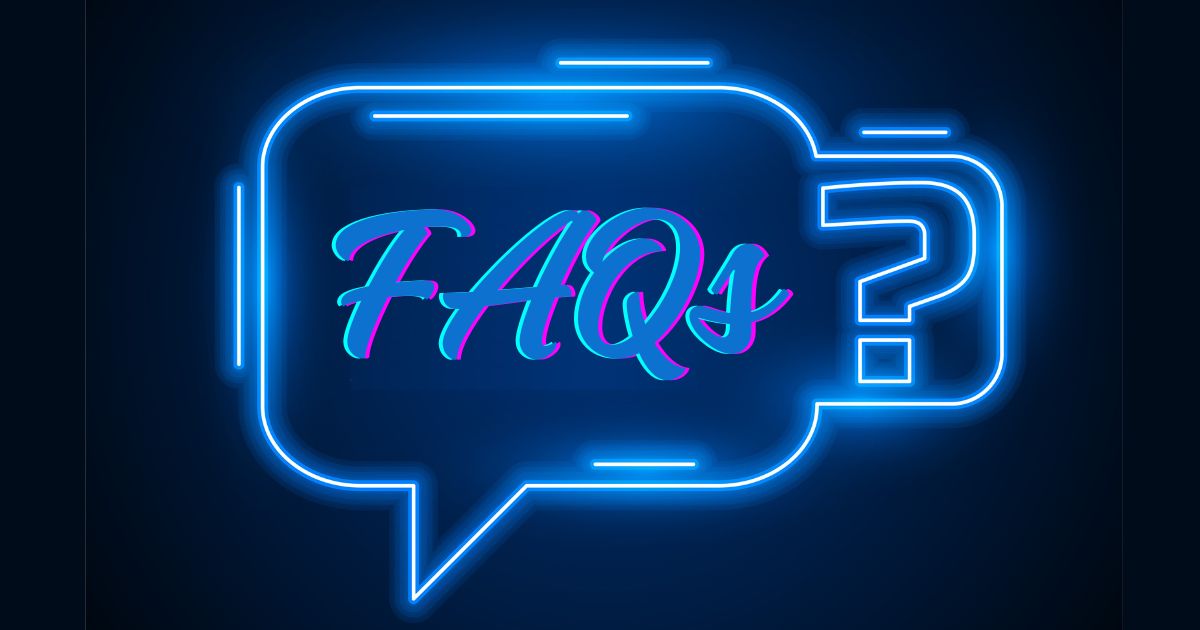
| January 19th, 2024 |
Credit Card FAQs — Test, Real, and Fake Numbers, Swift Codes, Security, Fraud Prevention!
Test Credit Card Numbers:
Q1: What are test credit card numbers?
A: Test credit card numbers are fictitious card details used in software development and testing to simulate transactions without using real financial data.
Q2: Can test credit card numbers be used for actual purchases?
A: No, test credit card numbers are not valid for real transactions. They are designed exclusively for testing purposes.
Q3: Where can I find test credit card numbers?
A: Test credit card numbers can be obtained from various online sources or payment gateway documentation for development and testing purposes.
Q4: Are test credit card numbers secure for testing applications?
A: Yes, test credit card numbers are secure for testing, as they are not linked to actual bank accounts and cannot be used for fraudulent activities.
Q5: How do test credit card numbers differ from real ones?
A: Test credit card numbers lack validity and authorization, ensuring that transactions made with them do not affect real financial systems.
Q6: Are there specific industries that commonly use test credit card numbers for development?
A: Yes, industries such as e-commerce, software development, and financial services often utilize test credit card numbers to ensure the functionality of payment systems.
Q7: Can test credit card numbers be used for testing subscription-based services?
A: Yes, test credit card numbers are suitable for testing subscription models, allowing developers to simulate recurring payments.
Q8: Are there any legal implications for using test credit card numbers incorrectly?
A: Yes, misusing test credit card numbers or attempting to use them for fraudulent purposes can result in legal consequences.
Q9: How often are test credit card numbers updated?
A: Test credit card numbers are periodically updated to maintain security and relevance in line with industry standards.
Q10: Can test credit card numbers be used in production environments accidentally?
A: Developers should implement proper safeguards to prevent the accidental use of test credit card numbers in production environments.
Real Credit Card Numbers:
Q1: What are real credit card numbers?
A: Real credit card numbers are valid and authorized card details issued by financial institutions for legitimate transactions.
Q2: Can real credit card numbers be shared openly?
A: No, sharing real credit card numbers publicly is a violation of privacy and security regulations. Always keep such information confidential.
Q3: What should I do if I lose my real credit card?
A: If you lose your real credit card, contact your bank immediately to report the loss and request a replacement card.
Q4: Can real credit card numbers be used for identity theft?
A: Yes, real credit card numbers can be used for identity theft, so it’s crucial to safeguard your card and monitor your statements for any unauthorized activity.
Q5: How is interest calculated on real credit cards?
A: Interest on real credit cards is typically calculated based on the average daily balance and the annual percentage rate (APR).
Q6: Can I have multiple real credit cards from different banks?
A: Yes, individuals can have multiple real credit cards from different banks, but responsible management is key to avoid financial strain.
Q7: Are there age restrictions for obtaining a real credit card?
A: Yes, individuals usually need to be of legal age, typically 18 or older, to apply for a real credit card.
Q8: How can I protect my real credit card number from fraud?
A: Protect your credit card by keeping it secure, using secure websites for online transactions, and monitoring your account regularly for unauthorized activities.
Q9: Are real credit card numbers always 16 digits long?
A: No, while most credit cards have 16 digits, some may have fewer or more depending on the issuing bank and card type.
Q10: Can real credit card numbers be used internationally?
A: Yes, real credit card numbers can be used internationally, but it’s essential to inform your bank about your travel plans to avoid potential issues.
Fake Credit Card Numbers:
Q1: What are fake credit card numbers?
A: Fake credit card numbers are randomly generated sets of digits that do not correspond to any valid credit card issued by financial institutions.
Q2: Can fake credit card numbers be used for illegal activities?
A: Using fake credit card numbers for illegal activities is against the law and can result in serious consequences.
Q3: Why would someone use fake credit card numbers?
A: Fake credit card numbers are often used for testing purposes, online surveys, or scenarios where real financial data is not required.
Q4: Are fake credit card numbers completely secure?
A: While fake credit card numbers lack validity, it’s crucial to be cautious and not use them for any unauthorized or unethical activities.
Q5: How are fake credit card numbers generated?
A: Fake credit card numbers are typically generated using algorithms that create random combinations of digits following the card’s structure.
Q6: Are there legal uses for fake credit card numbers?
A: Legitimate uses for fake credit card numbers include testing e-commerce websites, educational purposes, and conducting market research.
Q7: Can fake credit card numbers be used to access free trials without risk?
A: While some services may accept fake credit card numbers for trials, it is essential to abide by the terms of service to avoid legal consequences.
Q8: Are there tools available for generating fake credit card numbers?
A: Yes, there are online tools designed for generating fake credit card numbers for educational and testing purposes.
Q9: Should I ever share fake credit card numbers with anyone?
A: It’s advisable not to share fake credit card numbers, as they may be misused for illegal activities.
Q10: Can websites detect the use of fake credit card numbers?
A: Some websites implement security measures to detect fake credit card numbers and prevent misuse.
Swift Code:
Q1: What is a Swift code?
A: A Swift code (or BIC) is a unique identification code for banks and financial institutions used for international money transfers.
Q2: How many characters does a Swift code have?
A: A Swift code is usually 8 or 11 characters long, representing the bank, country, and branch.
Q3: Is a Swift code the same as an IBAN?
A: No, a Swift code identifies the bank, while an IBAN (International Bank Account Number) identifies an individual account within that bank.
Q4: Where can I find my bank’s Swift code?
A: You can find your bank’s Swift code on your bank statement, online banking portal, or by contacting your bank directly.
Q5: Do all banks have a Swift code?
A: Most banks, especially those involved in international transactions, have a Swift code. However, smaller banks in some regions may not have one.
Q6: Can a Swift code be used to locate a specific branch of a bank?
A: Yes, the last three characters of a Swift code often identify the specific branch of a bank.
Q7: Do all international money transfers require a Swift code?
A: While many international transfers use Swift codes, some regions may use alternative systems, so it’s essential to verify the requirements.
Q8: Can a Swift code be used for domestic transactions?
A: While Swift codes are primarily designed for international transactions, some countries use them for domestic transfers as well.
Q9: Is a Swift code the only information needed for an international money transfer?
A: No, along with the Swift code, you typically need the recipient’s account number and other relevant details for a successful transfer.
Q10: Can a Swift code be changed for a specific bank over time?
A: Yes, a bank may change its Swift code due to mergers, rebranding, or other organizational changes, so it’s essential to use the most up-to-date information.
Corporate Card:
Q1: What is a corporate card?
A: A corporate card is a credit card issued to employees by a company for business-related expenses. It helps streamline expense management and offers business-specific features.
Q2: Can individuals apply for a corporate card?
A: Typically, corporate cards are issued to employees by the employer, and individual applications may not be accepted.
Q3: How is a corporate card different from a personal credit card?
A: A corporate card is intended for business expenses and is issued in the company’s name, while a personal credit card is for individual use.
Q4: Are there spending limits on corporate cards?
A: Yes, companies can set spending limits on corporate cards to control expenses and ensure compliance with corporate policies.
Q5: What advantages do corporate cards offer to businesses?
A: Corporate cards simplify expense tracking, provide detailed reporting, and offer rewards tailored to business needs.
Charge Card:
Q1: What is a charge card?
A: A charge card is a type of credit card that requires the cardholder to pay the full balance each month, without the option of carrying a balance over time.
Q2: How does a charge card differ from a credit card?
A: Unlike credit cards that allow revolving balances, charge cards mandate full payment of the balance monthly.
Q3: Do charge cards have credit limits?
A: Charge cards often have no pre-set spending limits, but usage patterns and payment history influence approval for transactions.
Q4: Can you carry a balance on a charge card?
A: No, charge cards do not permit carrying a balance. The entire balance must be paid in full each billing cycle.
Q5: Are charge cards suitable for everyone?
A: Charge cards are best suited for individuals with strong financial discipline who can pay off the full balance each month.
